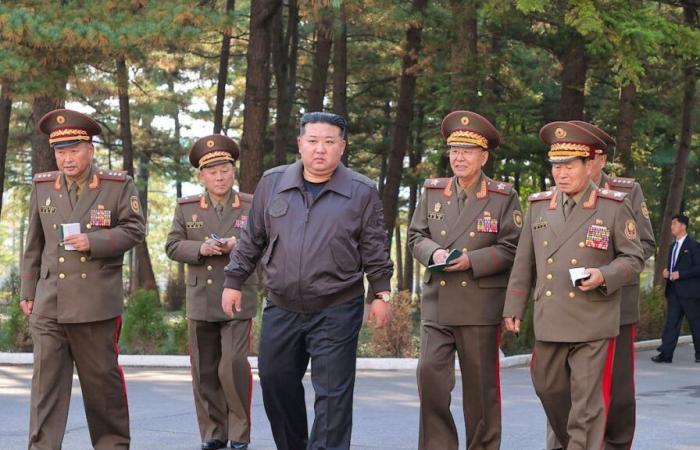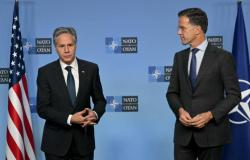Military cooperation between North Korea and Russia is intensifying, after North Korean soldiers were sent to Russia at the end of October. An initiative that does not only worry Ukraine. For South Korea, this operation would be a “dress rehearsal”, which revives the risk of escalation on the Korean peninsula.
Ukrainian President Volodymyr Zelensky said Thursday that North Korean soldiers had “taken part in hostilities” and suffered “losses.” On Friday, the Kremlin avoided the question. North Korea has never sent troops into combat abroad.
Citing American intelligence, the head of diplomacy Antony Blinken had already mentioned a North Korean deployment in the Russian region of Kursk, attacked by Ukraine in August. These soldiers are, according to him, equipped with Russian uniforms and trained in artillery, drones, infantry operations including trench cleaning, showing that Moscow “has every intention of using these forces in frontline operations.
Cannon fodder or special forces? South Korean analysts favor the second option. “If losses are inseparable from war, what would be the point of sending incompetent troops (…) to train them?” says Yang Moo-jin, president of the University of North Korea Studies in Seoul.
The figures are unverifiable but Westerners cite around 10,000 North Korean soldiers deployed, 11,000 according to kyiv. Or around ten days of combat, according to estimates of Russian losses. “If Russia has manpower problems, it will take a lot more North Korean soldiers to solve them,” says retired Australian general Mick Ryan. Others object that this volume will not be negligible if the soldiers remain in the Kursk region.
Pyongyang’s special forces are first trained to prevent a coup, with “political commissars (who) sign every military decision,” writes Fyodor Tertitsky of Kookmin University in Seoul. “The question remains whether this cumbersome system will be modified for the needs of the war in Ukraine”, which would be “impossible without the personal agreement of Kim Jong-un”. North Korean troops have not fought since 1953 and are expected to suffer against Ukrainians who have been at war for two and a half years.
“Sharing lessons on modern combat, in particular the integrated use of drones, ballistic and cruise missiles, will be of great interest to North Korea,” assures Mick Ryan, also citing electronic warfare and “the knowledge gleaned from Western weapons recovered in Ukraine.
But the opposite is also true: in the midst of tensions on the peninsula, “Seoul seems to want to seize the opportunity to obtain intelligence on its enemy,” argues Fyodor Tertitsky. Especially since the closure of the border dating from the Covid-19 pandemic has considerably reduced the arrival in the south of refugees from the north, who constitute Seoul’s “main source of information” about its neighbor.
NATO wants to convince Trump
NATO and its partners in Asia – South Korea, Japan, Australia and New Zealand – “strongly” condemned on Friday North Korea’s engagement alongside Russia in its “war of aggression” against Ukraine.
“The deployment of thousands of fighters (from North Korea) constitutes a dangerous intensification of the already substantial support provided by this country to the war of aggression that Russia is waging, completely illegally, against Ukraine,” indicated the Atlantic Alliance in a press release, specifying that its partners in Asia, and Ukraine, had joined this text.
NATO Secretary General Mark Rutte said Thursday that he wanted to meet President-elect Donald Trump as quickly as possible to discuss this commitment by North Korea, which constitutes, according to him, a threat not only to Europe, but also for the United States.






